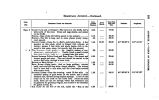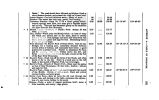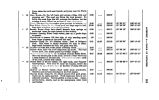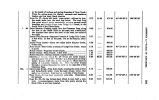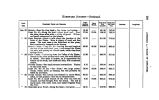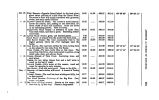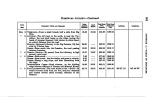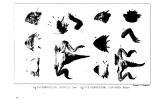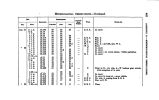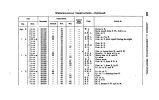| OCR Text |
Show 170 BLACK ROCK. minence of the northern extremity of the mountain ridge forming the island, and encamped upon the white- sand beach of a lovely little bay indenting its eastern shore. The whole of this part of the ridge consists of large masses of quartzose and sandstone rock, variously tinged with oxide of iron, and conglomerates. Heavy squall, with rain and snow, during the night. Having provided ourselves with only a single keg of water, in expectation of finding some during the day, we discovered before night that it was nearly exhausted; so all hands were put upon short allowance, and a very small cup of coffee was served out for supper. There was no discontent, however, though all went to their blankets almost famished for water, and fervently hoping we might find a supply early in the morning. Saturday, April 20.- A fresh gale was blowing from the northwest, which continued to increase during the day. The wind was excessively cold, and the men were obliged to wrap themselves in buffalo- skins to keep warm. Setting the foresail, we ran to Black Rock, a distance of more than twenty miles, in a little more than three hours. A station was framed from timbers which had been previously cut in the mountains and hauled to the spot for the purpose; but the force of the party was not sufficient to raise it. Orders were sent to the herdsmen in Tuilla Valley, near by, to bring a team in the morning, to transport Lieutenant Gunnison's party to the city. A beef was killed and divided between the companies. The herd was also directed to be removed from Tuilla Valley to Antelope Island for the season. The station was raised the following day, and we started for the city, leaving the boat's crew encamped on the shore of the lake. The interval, until the 25th, was employed in fitting out the party destined for the survey of the eastern shore of the lake, which being completed, I rejoined my people at Black Rock. Friday, April 26.- A violent blow from the north prevented our moving before the afternoon; but, just before sundown, the wind having lulled, we loaded the boat and started for Promontory Point, where the camp had been left under charge of Mr. Carring-ton. A southerly breeze struck us about dark, and continued all night. The weather was clear, but extremely cold. None of my crew had the least knowledge of managing a boat, and I was therefore always obliged to take the helm myself whenever the sails were set. As the wind had now become fair, and there was no necessity for rowing, each man wrapped himself in his blanket, |
































































































































































































































































































































































